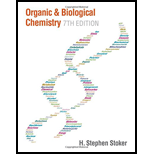
Concept explainers
Interpretation:
The IUPAC name for the compound whose common name is propyl chloride has to be chosen from the given set of options.
Concept Introduction:
The derivative of alkane with halogen instead of one or more hydrogen atoms is known as halogenated alkane. If the same is present in cycloalkane, then it is known as halogenated cycloalkane. They are product of reaction between alkane/cycloalkane with halogens.
Similar to the alkyl groups, the halogen is also treated as substituents present on the carbon chain. They are called as fluoro-, chloro-, bromo-, and iodo-.
If the carbon chain contains both alkyl and halogen, they both are considered of equal ranks. The numbering is done in a way so that the substituents get the least number, whether it is an alkyl or a halo group.
In IUPAC names, the groups that are present on the carbon chain are written in alphabetical order.
Common names:
Halogenated alkanes are also named as
Halogenation:
Halogenation is a
Halogenation reaction of alkane is an example of substitution reaction. This is a reaction where a part of reacting molecule replaces an atom or group of atoms in hydrocarbon or hydrocarbon derivative.
Want to see the full answer?
Check out a sample textbook solution
Chapter 1 Solutions
Organic And Biological Chemistry
- 20.44 The Diels-Alder reaction is not limited to making six-membered rings with only car- bon atoms. Predict the products of the following reactions that produce rings with atoms other than carbon in them. OCCH OCCH H (b) CH C(CH₂)s COOCH མ་ནས་བ (c) N=C H -0.X- (e) H C=N COOCHS + CH2=CHCH₂ →→arrow_forwardGiven the attached data, provide the drawing for the corresponding structure.arrow_forwardno Ai walkthroughsarrow_forward
 Organic And Biological ChemistryChemistryISBN:9781305081079Author:STOKER, H. Stephen (howard Stephen)Publisher:Cengage Learning,
Organic And Biological ChemistryChemistryISBN:9781305081079Author:STOKER, H. Stephen (howard Stephen)Publisher:Cengage Learning, General, Organic, and Biological ChemistryChemistryISBN:9781285853918Author:H. Stephen StokerPublisher:Cengage Learning
General, Organic, and Biological ChemistryChemistryISBN:9781285853918Author:H. Stephen StokerPublisher:Cengage Learning

